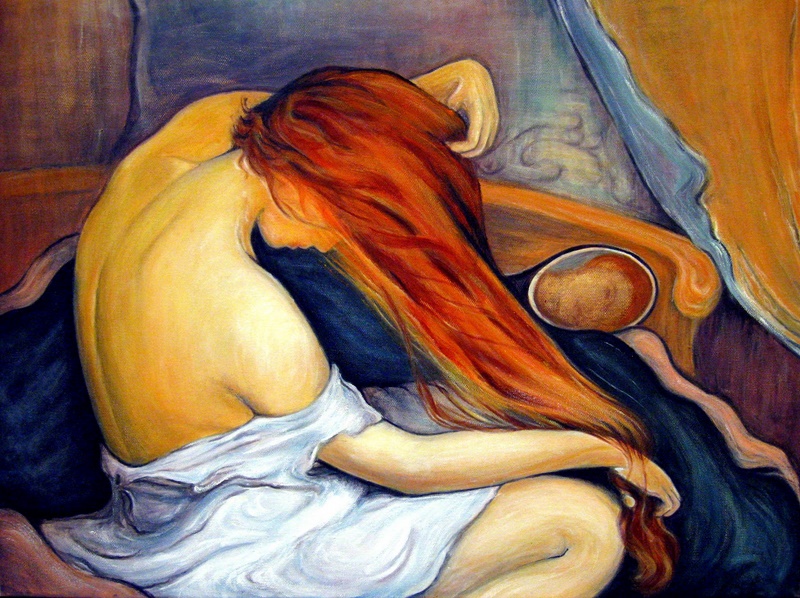Suicide Songs (English version)
Probably everybody heard some songs about suicide (Wikipedia lists 194 such songs ), but only few know that they have a long tradition.
Polish "suicide song" is a tango "This is the Last Sunday" ("Ta ostatnia niedziela"), composed by Jerzy Petersburski, words by Zenon Friedwald (1936). The most famously performed by Mieczysław Fogg. This song was one of the symbols of pre-WWII popular culture in Poland. Also, during the 1930s, it became a real 'evergreen' in the Soviet Union, where it was played on every street corner in Russian cities.
"This is the Last Sunday" describes the final meeting of former lovers just before they break-up. It gained the nickname of "Suicide Tango", due to its brooding verbal content, because suicide is strongly suggested in the lyrics:
One thing’s important – be happy
Don’t care about me now
Lest before everything ends
Before fate separates us
Give me this one Sunday
This is the last Sunday
Today we will break up
Today we will break apart
For eternity
It appeared in a number of films, eg: Schindler's List (Steven Spielberg, 1993) Three Colors: White (Krzysztof Kieślowski, 1994), Burnt by the Sun (Nikita Mikhalkov, 1994). But, this song also had a terribly sad fate, a darker relationship to death in this horrifying story (it became known as the "Death Tango"):
"In the sadistic Nazi concentration camps, The Last Sunday was often played by a small brass orchestra while Jewish prisoners were led to the gas chambers and ovens to be executed ... It was also played in the Treblinka concentration camp by a Jewish orchestra and a choir... while other Jewish prisoners were marching to the gas chambers. Each musican was dressed in a clown-like shining blue frock and an enormous bow-tie" (Z. Preisner, Three Colors Trilogy: Blue, White, Red: A Film Score Guide, p. 265).
"Gloomy Sunday" - a song was composed by Hungarian pianist Rezso Seress in 1932 - is also known as "The Hungarian Suicide Song". Urban legend claims that many people have committed suicide while listening to this song. Suicidal lovers left a note at the scene of them suicides quoting some of the "Gloomy Sunday" lyrics. Otherwise, in January 1968 composer of this song did commit suicide.
This song was banned on the BBC for 66 years. The BBC ban was lifted by 2002.
Most popular version is sung by Billie Holliday, but I like this song in version by avant-garde singer Diamanda Galas. Excellent voice, in which I hear despair of spurned lover:
Sadly one Sunday, I waited and waited with flowers in my arms, for the grief I'd created.
I waited 'til dreams like my heart were all broken. The flowers were all dead and the words were unspoken. The grief that I knew was beyond all consoling, the beat of my heart was a bell that was tolling. Saddest of Sundays.
It is significant that both songs have a word "Sunday" in the title, although according to the statistics, most suicides are committed on Friday.
Jarosław Olczak



















